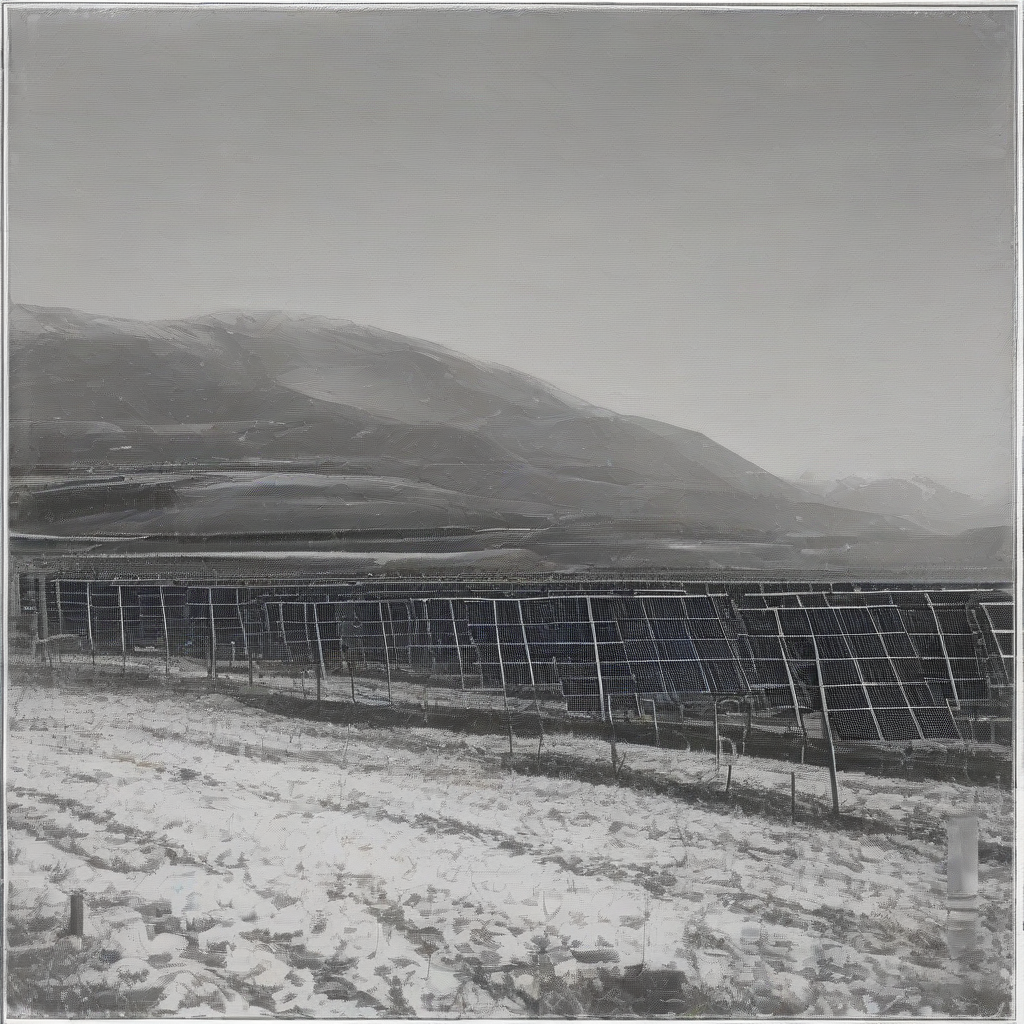Norbut Solar Farms: A Deep Dive into Efficiency, Sustainability, and the Future of Renewable Energy
The burgeoning field of renewable energy is constantly evolving, with solar power taking center stage as a crucial component of a sustainable future. Norbut Solar Farms, a hypothetical example, represents the cutting edge of this revolution, embodying advancements in efficiency, sustainability, and technological innovation. This in-depth analysis will explore the various facets of Norbut Solar Farms, from its design and construction to its operational impact and long-term sustainability goals.
Technological Innovations at Norbut Solar Farms
- High-Efficiency Solar Panels: Norbut utilizes the latest generation of photovoltaic (PV) panels, boasting significantly higher conversion rates than older technologies. These advanced panels maximize energy capture, even in low-light conditions, leading to increased energy output and a reduced land footprint.
- Smart Inverter Technology: The farm incorporates intelligent inverters that optimize energy flow and monitor panel performance in real-time. This allows for immediate detection and resolution of any issues, minimizing downtime and maximizing energy production. The data collected aids in predictive maintenance, further enhancing efficiency.
- Advanced Tracking Systems: Norbut employs sophisticated solar tracking systems that dynamically adjust the angle of the panels throughout the day, following the sun’s path. This ensures optimal solar irradiance and significantly increases energy generation compared to fixed-tilt systems.
- Energy Storage Solutions: Recognizing the intermittent nature of solar power, Norbut integrates advanced battery storage systems. These batteries store excess energy generated during peak hours, ensuring a consistent supply of power even when solar irradiance is low, such as during cloudy periods or at night. This enhances grid stability and reliability.
- Artificial Intelligence (AI) Integration: AI plays a crucial role in optimizing the farm’s performance. AI algorithms analyze vast amounts of data from various sensors to predict weather patterns, optimize energy dispatch, and proactively identify potential maintenance needs. This level of automation significantly enhances the farm’s overall efficiency and reduces operational costs.
Sustainability and Environmental Impact
Norbut Solar Farms is committed to minimizing its environmental footprint. This commitment is reflected in several key areas:
- Minimizing Land Use: Through the use of high-efficiency panels and optimized layouts, Norbut minimizes the land area required for energy production. This reduces the impact on natural habitats and allows for co-existence with other land uses, such as agriculture or wildlife preservation.
- Biodiversity Conservation: Norbut incorporates strategies to enhance biodiversity within the farm’s boundaries. This includes planting native vegetation around the perimeter and creating habitats for pollinators and other beneficial species. This approach transforms the solar farm into a more ecologically friendly environment.
- Water Conservation: Norbut implements water-efficient irrigation techniques for any landscaping or vegetation within the farm. This minimizes water consumption and reduces the farm’s overall environmental impact. Recycling and water harvesting techniques are also explored.
- Waste Management: A comprehensive waste management plan is in place to minimize waste generation and ensure responsible disposal of any materials throughout the farm’s lifecycle. This includes recycling of panels at the end of their lifespan and minimizing the use of single-use plastics.
- Carbon Footprint Reduction: The primary benefit of Norbut Solar Farms is the significant reduction in carbon emissions compared to traditional fossil fuel-based energy sources. By generating clean, renewable energy, the farm contributes significantly to mitigating climate change.
Economic and Social Impacts
Beyond its environmental benefits, Norbut Solar Farms contributes positively to the local economy and community:
- Job Creation: The development and operation of the solar farm create numerous jobs, including construction, engineering, maintenance, and management roles. This boosts local employment and stimulates economic growth.
- Tax Revenue: The farm generates significant tax revenue for the local government, which can be used to fund essential public services and infrastructure improvements.
- Community Engagement: Norbut actively engages with the local community through educational programs, outreach initiatives, and partnerships. This fosters understanding and support for renewable energy projects.
- Energy Independence: Norbut contributes to the region’s energy independence by providing a reliable and sustainable source of power. This reduces reliance on imported fossil fuels and enhances energy security.
- Property Value Enhancement: The presence of a clean energy facility like Norbut can have a positive impact on surrounding property values, demonstrating the economic benefits of sustainable development.
Challenges and Future Directions
Despite its numerous advantages, Norbut Solar Farms faces certain challenges:
- Intermittency of Solar Power: The fluctuating nature of solar energy requires efficient energy storage solutions and grid integration strategies to ensure reliable power supply.
- Land Acquisition and Permitting: Securing land for large-scale solar farms can be complex and time-consuming, requiring extensive permitting processes and negotiations with landowners.
- Transmission Infrastructure: Connecting solar farms to the electricity grid can require upgrades to existing transmission infrastructure, posing logistical and financial challenges.
- Panel Recycling and Disposal: Developing effective and environmentally sound methods for recycling and disposing of solar panels at the end of their lifespan is crucial for long-term sustainability.
- Public Perception and Acceptance: Addressing public concerns about the visual impact of solar farms and ensuring community acceptance is essential for successful project implementation.
Looking ahead, Norbut Solar Farms plans to continue innovating and improving its operations. This includes exploring:
- Next-generation solar technologies: Researching and implementing even more efficient and cost-effective solar panels and energy storage systems.
- Agrivoltaics: Integrating solar energy production with agricultural activities, maximizing land use and creating synergistic benefits.
- Smart Grid Integration: Developing advanced grid management strategies to optimize energy distribution and enhance grid stability.
- Enhanced Community Engagement: Continuing to build strong relationships with local communities and stakeholders.
- Carbon offsetting programs: Exploring partnerships to further offset carbon emissions beyond the immediate output of the solar farm.
In conclusion, Norbut Solar Farms stands as a model for the future of renewable energy. Its commitment to technological innovation, environmental sustainability, and economic development demonstrates the potential of solar power to address global energy challenges while promoting a cleaner, healthier, and more prosperous future.
